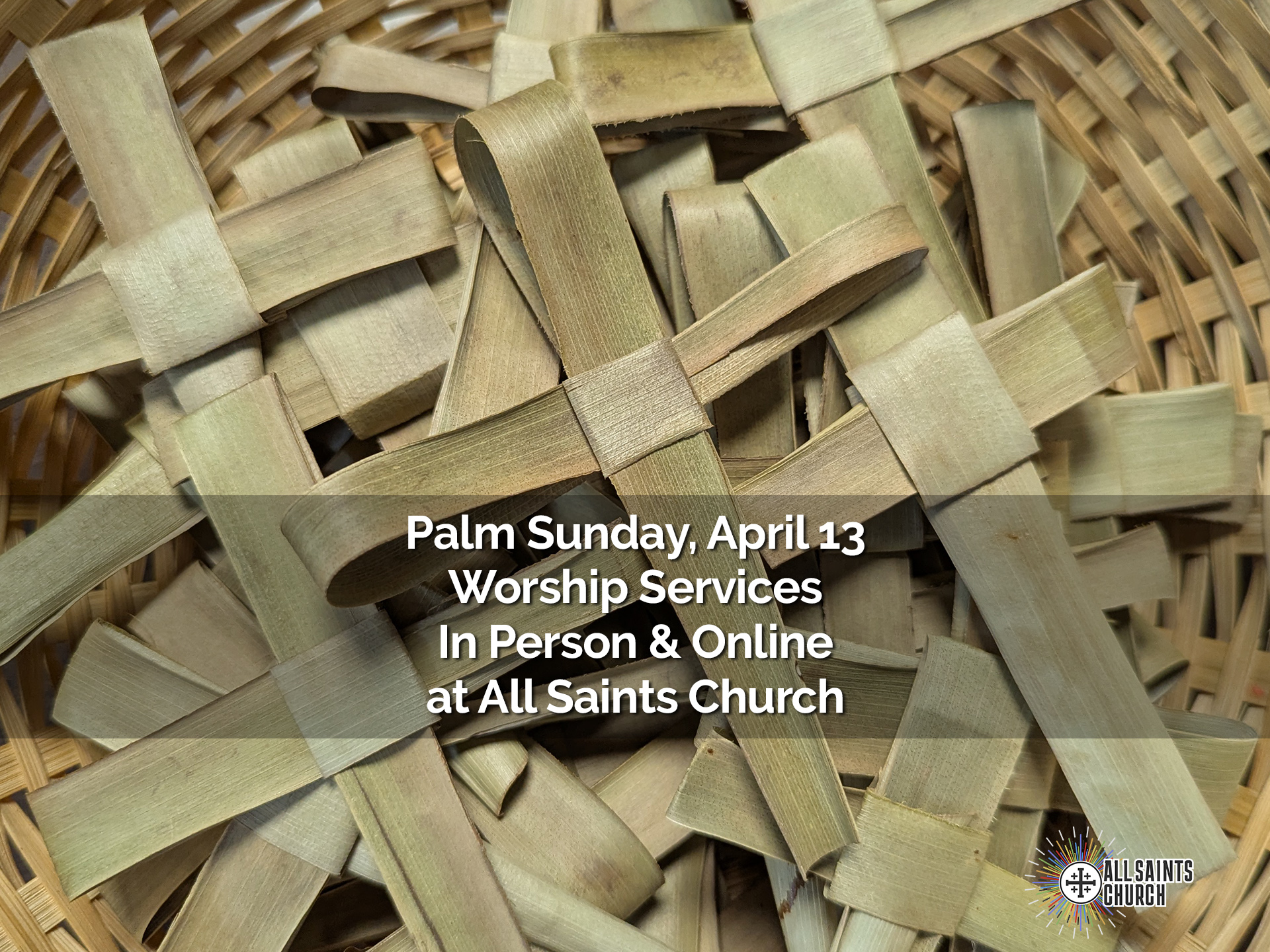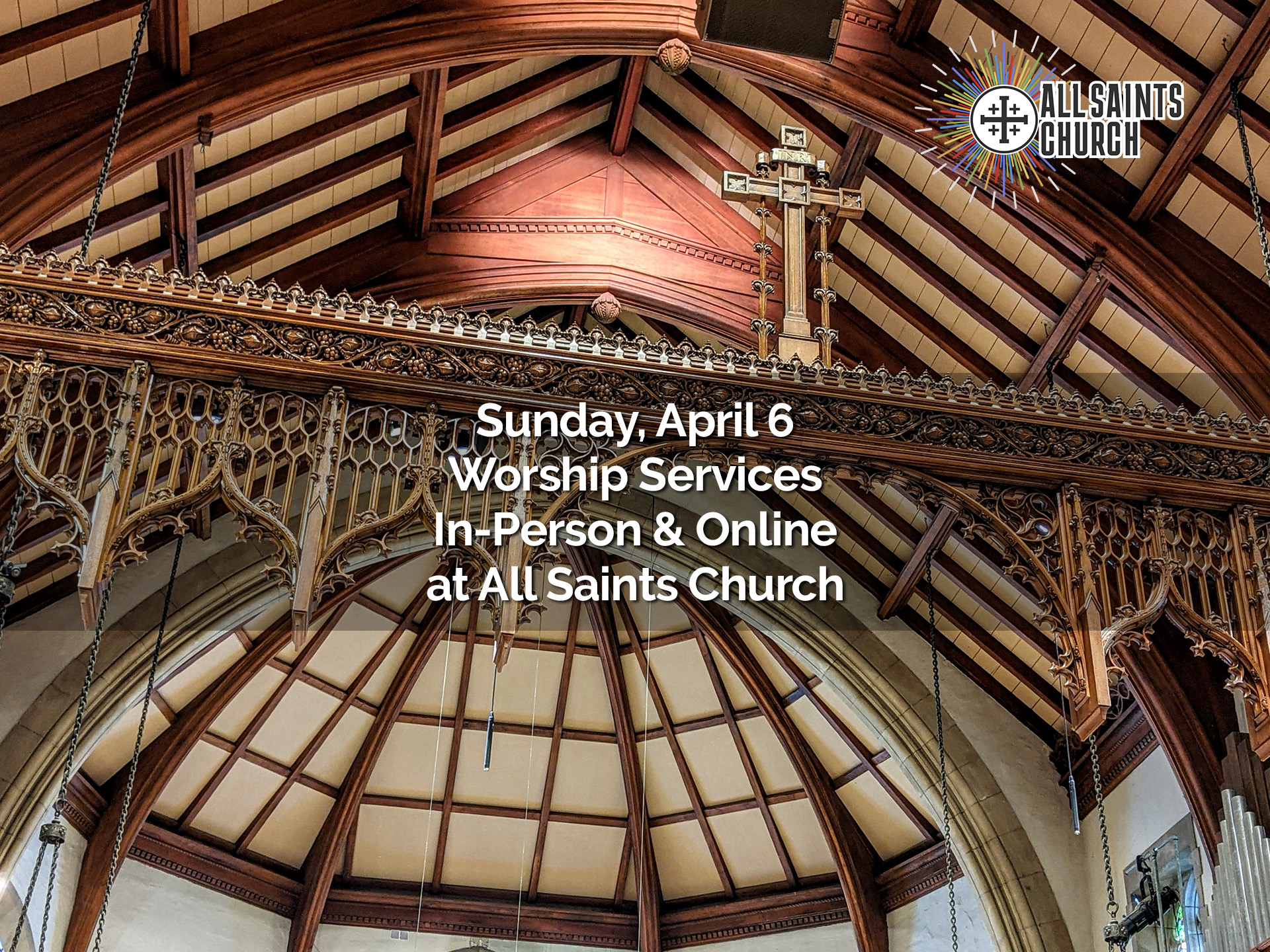The Gospel isn’t meant to be gulped down on Sunday morning, but gnawed on through the week so it really becomes a part of us. You’ve got to work at it, like a dog with a good bone! Here’s the Gospel for this coming Sunday — Easter Sunday — with food for thought about living in the tension between success and faithfulness. Gnaw away!
Easter Sunday – Luke 24:1-12
On the first day of the week, at the sign of dawn, the women came to the tomb bringing the spices they had prepared. They found the stone rolled back from the tomb; but when they entered the tomb, they did not find the body of Jesus. While they were still at a loss over what to think of this, two figures in dazzling garments stood beside them. Terrified, the women bowed to the ground. The two said to them, “Why do you search for the Living One among the dead? Jesus is not here; Christ has risen. Remember what Jesus said to you while still in Galilee – that the Chosen One must be delivered into the hands of sinners and be crucified, and on the third day would rise again.“
With this reminder, the words of Jesus came back to them. When they had returned from the tomb, they told all these things to the eleven and the others. The women were Mary of Magdala, Joanna and Mary the mother of James. The other women with them also told the apostles, but the story seemed like nonsense and they refused to believe them. Peter, however, got up and ran to the tomb. He stooped down, but he could see nothing but the wrappings. So he went away, full of amazement at what had occurred.
The Backstory – What’s Going On Here?
While the basic story of the resurrection is the same in all four Gospels, each one has its unique features. In Luke, it is the two figures in dazzling clothes (similar to the two angels in John) who say, “Why do you search for the Living One among the dead?” It’s also notable that the rest of the mysterious figures’ words were the same recounting of the story of Jesus that the person on the road to Emmaus told two of the disciples in the story that immediately follows this one. As a Gospel to the Gentiles, Luke (and remember the Gospel of Luke is the first of a two-part work that concludes in the Acts of the Apostles), makes a point of elevating Peter over the other disciples in his amazement and his lack of disbelief. Peter becomes a key figure in the evangelization of the Gentiles and the spread of the early church.
A few things to chew on:
*The call to discipleship is a call not to success but to faithfulness. There is no better example of this than the women who came to the tomb. They thought it was over. Jesus was dead. And yet they were faithful to the end, bringing the spices to the tomb to finish burying the body. And despite being dismissed by the other disciples, they were faithful witness of what they saw that morning. We usually judge success by results, and yet by that standard the two tasks the women had — prepare the body and spread the word of the resurrection — were complete failures. Yet without them, we would not be celebrating Easter. Where in your life do you feel – or have you felt — yourself living in the tension between success and faithfulness?
*Luke 24:4 describes the women as “at a loss” when they saw the stone rolled away. A closer translation of the Greek is that they were “shallow breathed.” The events literally took their breath away. When was the last time something or someone in the community of faith took your breath away? Have you ever taken someone else’s breath away?
*That women were the witnesses of the resurrection is important … and unusual. In much of rabbinic Judaism, the testimony of women was at best unreliable and at worst invalid. If they were trying to build a case for the resurrection, women would not be the witnesses you would build that case on. This was not a “wise as serpents” moment for God … anyone trying to build a movement would have said this wasn’t good strategy, that you have to choose your leaders better than that. When in your life have you had someone unexpected or someone others count as unreliable give you important wisdom or leadership? When have you been that person for others?
Try This:
Easter Sunday is the most glorious morning of the church year … and certainly at All Saints Church. The choral music, the Alleluias, the beautiful flowers, the festival procession and Eucharist.
Yet the morning is never so brilliant as when we have walked through the night together. This week, come be a part of each day of the Triduum (Maundy Thursday, Good Friday, and the Great Vigil of Easter on Saturday). Especially make the effort to come if you’ve never done it before. Then see what difference it makes as we break into Easter together.
From Blues to Gospel
When I was in St. Louis, Christ Church Cathedral began a Good Friday partnership with nearby Washington Tabernacle Missionary Baptist Church to gather at the foot of the cross for an offering of blues music called “Blues at the Crossroads of Good Friday.”
The idea for this actually came 16 years ago when I read [1]this article in Fast Company magazine called “Change-Agent Blues” (https://www.fastcompany.com/39611/change-agent-blues)… about a business consulting group that used the blues to help coworkers name their brokenness in their lives and workplace.
They’d do a corporate retreat and have everyone choose their own blues name, and write and sing blues music about their work experience.
One of the founders describes it this way:
“The blues isn’t about finding a solution to what’s wrong; it’s about stating what the feeling is. To change a bad situation, you first have to acknowledge it.”
That’s why we explored making Blues on Good Friday a tradition at Christ Church Cathedral. Because if there is ever a moment of the blues … where deep pain of our lives is laid bare … it’s Good Friday.
But no business consulting worth anything is just going to help people name the brokenness. They have to help them find hope. You have to take them beyond the blues to a place “where you go for celebration, ecstasy, gratitude — a place to get out of your head, stop focusing on all the junk and start realizing how beautiful life is.”
And what is that place called?
“The musical place beyond the blues is called … Gospel.”
That’s right.
We sing the blues on Good Friday because Good Friday is a time to get real about the pain and the brokenness. To stand or kneel or lie at the foot of the cross and lay it all out.
But we don’t stop there. Because the roots of blues music itself is the hope of Gospel … the spirituals that were sung by enslaved people in labor camps and by formerly enslaved people and their descendants in the post-reconstruction South. Spirituals that were dead honest about the pain … but even more honest about the sure and certain hope of the resurrection.
As followers of Jesus, we can dive deeply into Good Friday because we are people of Easter Sunday.
As followers of Jesus, we can sing deep blues because we also sing glorious Gospel.
Come together this week as we do both together.
Collect for Sunday
Pray this throughout the week as you gnaw on this Gospel.
Almighty God, who through your only-begotten Son Jesus Christ overcame death and opened to us the gate of everlasting life: Grant that we, who celebrate with joy the day of the Lord’s resurrection, may be raised from the death of sin by your life-giving Spirit; through Jesus Christ our Lord, who lives and reigns with you and the Holy Spirit, one God, now and for ever. Amen.



